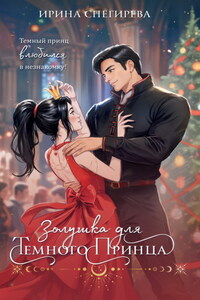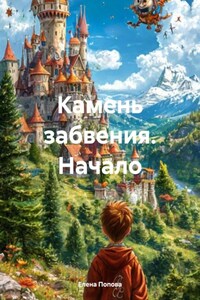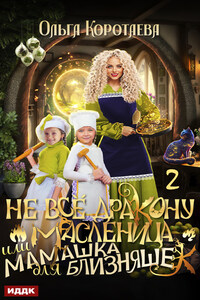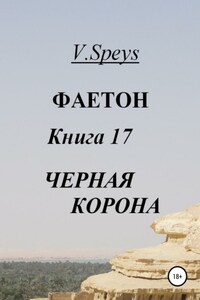Shpitki. This is the name of the village, located on the twenty- eighth kilometer of the Brest- Litovsk highway from Kiev to the West. At the twenty- eighth kilometer of the highway, the road turns to the left and, along the stone- paved roadway, rushes towards the village. Until the seventeenth year in Shpitki was the estate of the famous sugar factory Tereshchenko. A rich landowner broke the beautiful park of the manor, dug a cascade of ponds. He built a church, an exact copy of the Cathedral of St. Vladimir. Inside the church was painted with the faces of saints. The students of Vasnetsov himself worked on the painting. After the revolution, before the events described in the book, the church still survived and even served. In the fifties the only brick house was my mother's house Zimoglyad Olga Andreevna, who she built for a bank loan. In fact, after the war, not everyone gave a loan in the bank. Since Olga Andreevna was elected a deputy of the Supreme Council of Ukraine of the 4th convocation, she was given a bank loan of 10,000 rubles for construction. The building materials did not have any problems, since the deputy of the Supreme Soviet of the Ukrainian SSR was supposed to be provided first of all with a guarantee of payment. And the house was built. Inside the house it was lovely in the summer. The coolness was refreshing when the heat was outside. And it was damp and cold in the winter. The stoves were always smoking, and there was a pungent smell of the briquette (a mixture of coal dust and resin). In the house, my grandmother, an old wrinkled woman with a trembling chin in a long skirt and apron, was standing by the stove and the heat was interfering. Her name was Eugenia Lavrentyevna, her surname by her husband Zimoglyad, and her maiden name was Sribna. My grandmother was from Pereyaslav Khmelnitsky, and on long winter evenings, I often remembered my home and my own brother, unfortunately I did not remember his name, I only know that he lived all his life in Pereyaslav- Khmelnitsky. That he was a fanatical devotee of pigeons. In his private home, he had a dovecote in his attic, where strict order and purity reigned.
Olga Andreevna's house smelt of borscht and a delicious aroma of stew. The village lived in prosperity, as they themselves grew everything – both vegetables and meat.
I kept spinning around my grandmother, involuntarily preventing me from casting stove forks. On what the grandmother was angry and grumbled: "I would have drowned myself in the Sartre, and I would not have suffered!" "Not evil, looking at me," she said. I never took offense at my grandmother, and now, simply did not pay attention to her words. Just asked: "Grandma, what's for dinner today?"
– I'm sorry, what? See! Grumbled my grandmother, "If only you ate?"
"I will eat only meat," I answered, "eat the fat yourself."
"Here's the wrecker." Will you, you scoundrel soul, bread crusts happy.
I felt hurt. I puffed my puffy cheeks and fell behind my grandmother. I had in my hands a penknife, which I wore in my pocket corduroy dark brown shorts to the knees. And he began to make a propeller. I liked it when the wind turned my product, and, then It seemed that I was flying in the airplane over the open spaces of the village fields, above the trees and the snowy park. Evening. Twilight thickened outside the window. Grandmother lit a light bulb by clicking the switch. Footsteps were heard in the corridor and the door opened.
On the threshold in a green kerchief and a sweatshirt there was a ruddy and very thin my mother. Her bright eyes ran about the room, they found a stool. She tired, sat down, began to take off her boots.
"It's cold outside." Frost. She said, not looking at me. "Did the plum eat anything, or not?" She asked her grandmother.
"Let him tell you." "My grandmother answered unfriendly, starting to get food from the stove.
I began to tell what my grandmother had fed me, and my mother commented:
"Why did not you drink milk, eh?"
"I'm not a barrel." To burst?
Meanwhile, on the table, near the window, a smoking, deep dish of borscht and two pieces of pork appeared, issuing an appetizing aroma.
My mother broke off a clove of garlic and, dipping it into salt, began to eat.
I watched the mother's food, wincing at the displeasure. He imagined how stuffy and disgusting the bedroom would be full of this smell. And how hard it will be to hurt your head and chest from the garlic stench in an unventilated room where he slept in the same room as his mother. It so happened that the mother ate once a day, and it was in the evening.
In the morning she hurried to work still dark, and returned when it was already completely dark.
At the state farm, where she worked, she was known, loved and respected for her diligence, unselfishness and simplicity. Comrades to work with her was both difficult and easy at the same time. Her temperamental and nervous temperament caused her to be reckoned with. But the truth and justice, with which she spoke aloud and with everyone, evoked sympathy among all workers and hidden hatred of the leadership. They were afraid of her. They tried not to admit to the top of the administrative apparatus and suffered, remembering those ties that she had preserved since the time in the government with Nikita Khrushchev himself.














